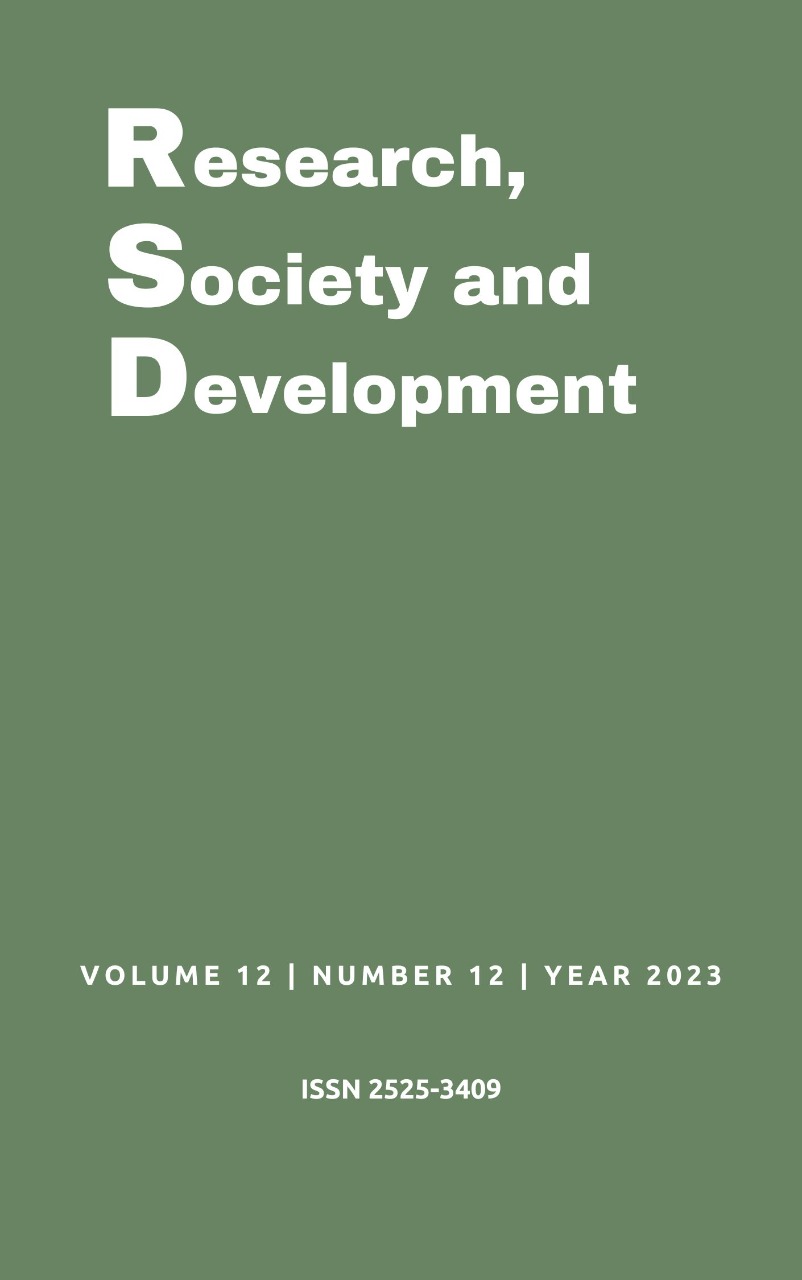The liquidity of authentic relationships in the hypermodern era: A study on the fragility of human bonds
DOI:
https://doi.org/10.33448/rsd-v12i12.43963Keywords:
Hypermodernism; Human bonds; Commitment; Responsibility.Abstract
Introduction: Hypermodernity is a society focused on pleasure and well-being, amplifying the values of modernity, but at the same time, creating a world without references, empty of meaning and purpose. In this context of change, contemporary individualism, changes in intimacy and the fragility of human ties in fluid modernity, are explored, given the changes resulting from socio-relational changes. Objective: the objective of this brief study is to discuss how the sociocultural transformations of hypermodernity impact social representations about commitment and responsibility in human relations. Methodology: narrative literature review through searches in electronic databases SCIELO and CAPES. A search strategy was carried out using the descriptors “hypermodernity”, “Bauman”, “Lipovetsky” and “society”. This study included complete articles available online with approaches on hypermodernity and its impact on commitment and responsibility in Human Relations, published between 2013 and 2023, in Portuguese and English. Articles that were not found in full, published more than ten years ago and/or published in other languages were excluded. Results: the fluidity and flexibility of social relationships have led to a decrease in commitment and responsibility. Conclusion: sociocultural transformations in hypermodernity have radically redefined the dynamics of human relations, undermining the traditional bases of commitment and responsibility.
References
Aderaldo, C. V. L., Aquino, C. A. B. & Severiano, M. F. V. (2020). Aceleração, tempo social e cultura do consumo: notas sobre as (im)possibilidades no campo das experiências humanas. Cadernos Ebape, 18(2), 365-376. https://www.scielo.br/j/cebape/a/Vq8CxsJ6xpwcyjGt9SqMgBz/?format=pdf&lang=pt
Bandeira, E. F. (2016). Hipermodernidade, multiletramentos e gêneros discursivos. Entrepalavras, 6(2), 408-413. http://www.entrepalavras.ufc.br/revista/index.php/Revista/article/viewFile/739/366
Bauman, Z. (2004). Amor líquido: sobre a fragilidade das relações humanas. Jorge Zahar.
Bauman, Z. (2007). Vida Líquida. Jorge Zahar.
Cruz, D. N. (2018). Pós-modernidade ou hipermodernidade? Pensando o sujeito contemporâneo sob as óticas de Lipovetsky e Bauman. Sapere aude, 9(18), 351-371. https://periodicos.pucminas.br/index.php/SapereAude/article/view/18319/14170
D’Antony, J. P. (2022). Quando a hipermodernidade guia à cegueira: desassossegos em Saramago. Revista Desassossego, 14(27), 174-187. https://www.revistas.usp.br/desassossego/article/view/195366/186497
Dias, E. R. & Rocha R. F. (2019). A constituição líquida: mutação constitucional e expansão de direitos fundamentais na hipermodernidade. Revista Direitos Fundamentais & Democracia, 24(1), 143-160. https://revistaeletronicardfd.unibrasil.com.br/index.php/rdfd/article/view/1423/573.
Ferreira, F. A. & Santos, G. H. G. (2018). A condição do indivíduo na pós-modernidade: leituras de Bauman e Lipovetsky. Sinais, 22(1), 81-89. https://periodicos.ufes.br/sinais/article/view/15981
Ferreira, J. S., Silva, J. F. O. & Queiroz, F. G. L. (2023). A modernidade líquida de zigmunt bauman e a era do vazio de gilles lipovetsky: perspectivas sobre a contemporaneidade. Revista Teologia & Contemporaneidades, 1(2), 2-15. https://ojs.faculdadefmb.edu.br/index.php/teologia-e-contemporaneidades/article/download/38/33
Freitas, F. D. A. (2023). O anúncio publicitário na esfera das hipermidias digitais no contexto hipermoderno. Trabalho de Conclusão de Curso. Universidade Federal de Campina Grande, Cajazeiras, Paraíba. http://dspace.sti.ufcg.edu.br:8080/xmlui/bitstream/handle/riufcg/29405/FRANCISCO%20DANILO%20ALVES%20DE%20FREITAS.%20MONOIGRAFIA%20LETRAS%20-%20L%c3%8dNGUA%20PORTUGUESA.%20CFP%202023.pdf?sequence=1&isAllowed=y
Lipovetsky, G. (2004) Os tempos hipermodernos. = Barcarolla.
Mattos, P. C. (2015). Tipos de revisão de literatura. Unesp, 1-9. = https://www.fca.unesp.br/Home/Biblioteca/tipos-de-evisao-de-literatura.pdf
Reichow, L. D. K. (2015). Individualismo, hedonismo e narcisismo na hipermodernidade. Anais do Salão de Pesquisa da Faculdades EST, 14, 86-93. http://www.anais.est.edu.br/index.php/salao/article/view/624/329
Ribeiro, R. A. C. & Horta, A. A. (2013). Os super-heróis e o tempo: a descronologização na Hipermodernidade. Escola de Comunicações e Artes, 1-15.
Rosseti, M. L. (2016). O tempo presente: diálogo sobre a pós-modernidade. Percurso Acadêmico, 6(11), 207-215. https://periodicos.pucminas.br/index.php/percursoacademico/article/view/P.2236-0603.2016v6n11p207/11822
Sartori, A. M. (2016). Relacionamentos amorosos na atualidade. Unicfavest. https://www.unifacvest.edu.br/assets/uploads/files/arquivos/204b3-angela-maria-sartori--relacionamentos-amorosos-na-atualidade-2016_2.pdf
Segura-Muñoz, S. I., Takayanagui, A. M. M., Santos, C. B. & Eatman, O. S. (2002). Revisão sistemática de literatura e meta-análise: noções básicas sobre seu desenho, interpretação e aplicação na área da saúde. Simpósio Brasileiro de Comunicação em Enfermagem, 8, 1-7. http://www.proceedings.scielo.br/scielo.php?pid=MSC0000000052002000200010&script=sci_arttext
Tossato, C., Oliveira, J., Viesenteiner, J. L., Molina, J., Vicentini, M. X. & Verza, T. (Orgs.). (2019). Filosofia da Natureza, da Ciência, da Tecnologia e da Técnica. = ANPOF. https://anpof.org.br/wlib/arqs/publicacoes/56.pdf
Trajano, F. J. S. (2020). Pós-modernidade ou o quê? Reflexões acerca do aqui-agora. Revista Latino-Americana de Estudos em Cultura e Sociedade, 6(3), 1-21. https://periodicos.claec.org/index.php/relacult/article/view/1930/1304
Vieira, S. E. F., Martins, P. H. & Brugneroto, L. P. (2018). A filosofia e sua possível contribuição educacional para pensar os desafios contemporâneos. Cadernos UniFOA, 37, 59-68. https://ebape.fgv.br/sites/default/files/paginas/dez/18/apa_portugues.pdf
Downloads
Published
How to Cite
Issue
Section
License
Copyright (c) 2023 Fábio Peron Carballo; Ana Paula Matins Fonseca

This work is licensed under a Creative Commons Attribution 4.0 International License.
Authors who publish with this journal agree to the following terms:
1) Authors retain copyright and grant the journal right of first publication with the work simultaneously licensed under a Creative Commons Attribution License that allows others to share the work with an acknowledgement of the work's authorship and initial publication in this journal.
2) Authors are able to enter into separate, additional contractual arrangements for the non-exclusive distribution of the journal's published version of the work (e.g., post it to an institutional repository or publish it in a book), with an acknowledgement of its initial publication in this journal.
3) Authors are permitted and encouraged to post their work online (e.g., in institutional repositories or on their website) prior to and during the submission process, as it can lead to productive exchanges, as well as earlier and greater citation of published work.

